Washington, D.C. – U.S. Senators John Curtis (R-UT) and Mark Kelly (D-AZ) today introduced the Restoring WIFIA Eligibility Act, bipartisan, bicameral legislation aimed at strengthening water quality and storage infrastructure across the Western United States. Companion legislation has been introduced in the House of Representatives by Congressmen Jim Costa (D-CA) and Dan Newhouse (R-WA).
“After meeting with several water conservancy districts across Utah over the past few months, one thing is clear: Utah’s rapid population growth is placing significant pressure on our community water resources,” said Senator Curtis. “This bipartisan legislation would make it easier for local governments and utilities to invest in critical water infrastructure projects—helping ensure we can meet the growing needs of our communities.”
“Strengthening Arizona’s water infrastructure is key to the growth and prosperity of our state,” said Senator Kelly. “Our bipartisan bill will cut red tape to give more projects access to federal funding, which will help modernize our water infrastructure and address critical water challenges facing communities in Arizona and the western U.S.”
“Water is the lifeblood of the West, and as climate change intensifies drought and weather extremes, we must invest in reliable, modern water infrastructure,” said Congressman Costa. “Our legislation will provide California and San Joaquin Valley water managers with the tools they need to expand water storage and ensure clean drinking water in our communities.”
“Federal irrigation, clean water, and wastewater projects are essential to rural areas like Central Washington, but a lack of resources for maintenance and repairs puts our water infrastructure at risk. This legislation gives our local water managers the tools they need to sustain long-term projects and guarantee clean, safe water that our communities, farmers, and ranchers rely on,” said Congressman Newhouse.
“The legislation introduced by Senator Curtis is a practical solution that will accelerate essential water infrastructure projects. Allowing federal loans, which are ultimately repaid by local dollars, to serve as the local match for WIFIA funding maximizes the impact of every dollar our communities invest,” said Gene Shawcroft, General Manager, Central Utah Water Conservancy District. “This legislation will allow local water agencies to move forward with critical infrastructure projects that ensure continued compliance with federal regulatory requirements and the protection of public health.”
“Senator Curtis’ legislation will enable water districts to invest in innovative projects like our Regional Reuse System, which will be critical as we face future droughts and increasing water demand,” said Zachary Renstrom, General Manager, Washington County Water Conservancy District. “By allowing federal loans that are repaid by local dollars to be used as the local match for WIFIA funding, water agencies can maximize community resources and secure a resilient water future for our residents.”
Background:
The Water Infrastructure Finance and Innovation Act (WIFIA) of 2014 established a program designed to provide credit assistance to public and private borrowers for wastewater, drinking water, and stormwater projects. WIFIA loans offer attractive terms, including low, fixed-interest rates, flexible repayment schedules, and the ability to draw funds as needed. This structure helps communities undertake crucial water infrastructure improvements more affordably, benefiting ratepayers and local economies.
However, despite WIFIA’s broad intent, certain interpretations of the program have inadvertently created hurdles for projects with any federal involvement. These projects, while largely managed and funded by non-federal entities, have been erroneously classified as “Federal” for budgetary purposes. This classification has rendered them ineligible for WIFIA loans, which are statutorily available only to “non-federal borrowers.”
The Restoring WIFIA Eligibility Act addresses this issue by:
- Amending the WIFIA Act to clarify the budgetary treatment of financial assistance for hybrid-funded projects, and
- Ensuring that WIFIA assistance is deemed non-Federal as long as the recipient is a non-federal entity and the repayment sources are non-federal revenues.
The legislation would unlock a broader array of essential water infrastructure projects, including those that involve cost-sharing between federal and non-federal entities, thereby allowing communities to benefit from the completion of critical infrastructure projects at an optimal scale.
The full text of the bill can be found here.
